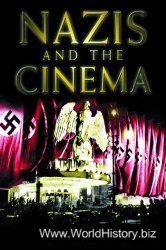Religious differences shaped not only the structures of learning and scholarship, but also the content of thought in the sixteenth century, which was influenced as well by the social and political changes we have traced in the previous two chapters. This can be seen most clearly in political theory, which is often conceptualized in response to actual political developments. Thus in the fourteenth century, after a series of confrontations between the popes and various rulers, most political theory was concerned with the proper relationship between church and state, with the balance shifting slowly toward those who viewed secular government as having more legitimate authority. Rulers were sanctioned by God, and their primary function was just like God’s: to judge and protect those under their authority. In the early fifteenth century, scholars in Italian cities, which were often divided by political factions, taken over by home-grown or regional despots, and attacked by foreign armies, looked to the stability of Rome as a model state. Some of them, especially those influenced by the writings of Cicero, a first-century bce Roman orator and opponent of Julius Caesar, argued that republicanism was the best form of government. Others used the model of Plato’s philosopher-king in the Republic to argue that rule by an enlightened single individual might be best. Both sides agreed that educated men should be active in the political affairs of their city, a position historians have since termed “civic humanism.”
The most famous (or infamous) civic humanist, and ultimately the best-known political theorist of this era, was Niccolo Machiavelli. He was the secretary to one of the governing bodies in the city of Florence, responsible for diplomatic missions and organizing a citizen army. Power struggles in Florence between rival factions brought the Medici family back to power, and Machiavelli was arrested, tortured, and imprisoned on suspicion of plotting against them. He was released, but had no government position, and spent the rest of his life writing - political theory, poetry, prose works, plays, and a multivolume history of Florence. The first work he finished - though it was not the first to be published - is his most famous, The Prince, which uses the example of contemporary rulers, especially the papal general Cesare Borgia (i475?-1507), to argue
That the function of a ruler is to preserve order and security. Weakness would only lead to disorder, which might end in civil war or conquest by an outsider, clearly situations that were not conducive to any people’s well-being. To preserve the state a ruler should use whatever means he needs - brutality, subterfuge, manipulation - but should not do anything that would make the populace turn against him; stealing or cruel actions done for a ruler’s own pleasure would only lead to resentment and destroy the popular support needed for a strong, stable realm. “It is much safer for the prince to be feared than loved,” Machiavelli advised, “but he ought to avoid making himself hated.”3 Effective rulers exhibited virtu, which is not virtue in the sense of moral goodness, but the ability to shape the world around them according to their will.




 World History
World History









